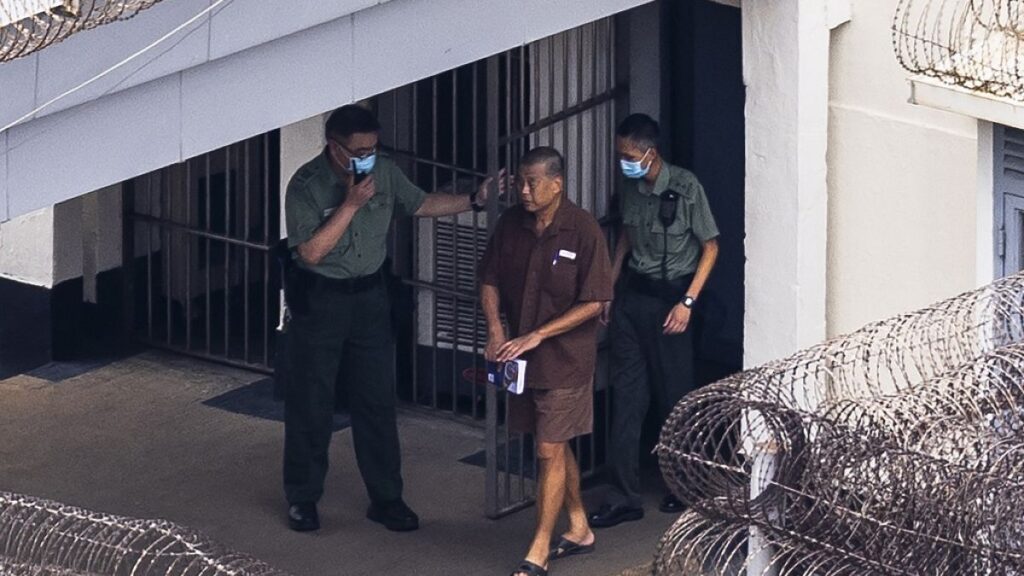Hong Kong pro-democracy tycoon Jimmy Lai, whose trial for crimes against national security opened Monday, is one of the territory’s most famous dissidents and one of Beijing’s old pet peeves.
Hong Kong pro-democracy tycoon Jimmy Lai, whose trial for crimes against national security opened Monday, is one of the territory’s most famous dissidents and one of Beijing’s old pet peeves.
He is the first to be accused of “collusion with foreign forces” under the drastic national security law, imposed by Beijing in 2020, a year after major pro-democracy demonstrations.
A “born rebel”
Billionaire Jimmy Lai, who likes to present himself as a “troublemaker”, has long supported Hong Kong’s democracy movement, which was repressed in 2019.
Born in mainland China, he arrived illegally at the age of 12 in Hong Kong where he worked in sweatshops before founding in 1981 what would become the international textile empire Giordano.
Mr. Lai founded his first publication, highly critical of the Chinese apparatus, shortly after Chinese tanks were sent into Beijing’s Tiananmen Square in 1989 to crush pro-democracy demonstrations.
Its two main titles, the Apple Daily and the digital-only Next magazine, were hugely popular in Hong Kong, blending sensationalism with hard-hitting political reporting.
They were also among the rare publications that openly sided with the huge pro-democracy protests in Hong Kong in 2019. Which led to Jimmy Lai being called a “traitor” by Chinese state media.
Shortly before his arrest in 2020, when asked by AFP why he was not peacefully enjoying his fortune, without making noise like so many Hong Kong tycoons, Mr. Lai replied: “I may be a rebel -born, maybe I’m someone who, besides money, needs to give a lot of meaning to my life.”
The “death knell for Hong Kong”
The tycoon added that Beijing’s national security law would sound “the death knell for Hong Kong”.
He was first arrested in August 2020 during an Apple Daily raid.
In December 2020, a judge granted him bail of 10 million Hong Kong dollars ($1.28 million) but a week later Hong Kong’s highest court ordered his return to prison where he is detained since, awaiting his trial which opened on Monday.
He is, according to his son Sébastien Lai, “the oldest political prisoner in Hong Kong”.
His foreign lawyer challenged
A different and stricter set of rules has applied to national security cases since Mr. Lai’s bail was revoked, a ruling that set a precedent and affected dozens of subsequent cases.
To defend himself during the trial, Mr. Lai had chosen Tim Owen, a famous British lawyer and specialist in human rights, but Beijing granted new powers to the leader of Hong Kong to challenge foreign lawyers in cases linked to the national security.
The city’s pro-Beijing parliament went further in May, passing laws requiring foreign lawyers to have special permission to intervene in such cases.
This dispute will result in a separate hearing in Mr. Lai’s trial next year.

